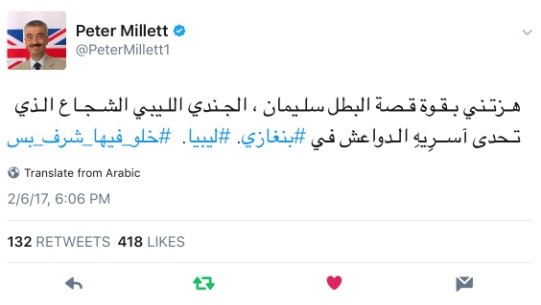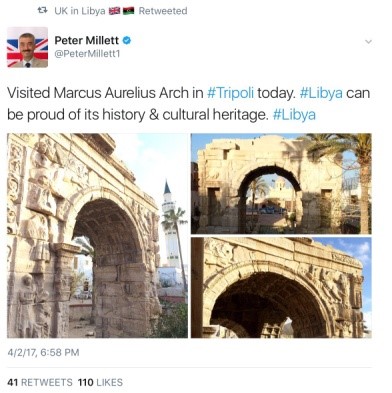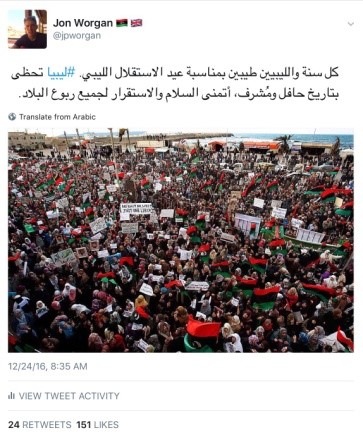bidd.org.rs; Article source: https://blogs.fco.gov.uk/fcoeditorial/2017/04/20/twiplomacy-from-tripoli/
Jon Worgan, 2nd Secretary Political, on how @UKinLibya built their 200k+ following and used twitter to cross borders and bridge political divides.

Almost half of Libya’s young population use social media. It was a unifying force during Libya’s revolution, but is now more often a driver of division. Getting our digital comms right is hard and getting harder. The politics is polarised, the mainstream media is party to the conflict, and the Libyan people are frustrated. They’re frustrated because Libya today is a far cry from what they hoped and dreamed of in 2011, when their aspirations fuelled the revolution and brought down the Qadhafi regime. For many Libyans, the blame falls on our and the international community’s shoulders, and so at times we’ve become the target of their frustration and anger. Each side of the conflict has its Trolls who police our tweets 24/7, but they are a minority. In short, the political context in which we’re communicating is not easy.

Like many posts, our comms capability is also constrained. We’re a small team, with a limited budget and the added complication of being based in exile. Social media was the main way we stayed connected with the Libyan people during exile and, now we’re visiting Libya every week, it remains critical to making the most of our increased engagement. Although there are new challenges – security constraints, power-cuts, reliable internet – our return has broadened our following. Through visits to our CSSF projects, cultural events, and heritage sites in Libya, we’ve been able to capitalize on our unique level of access.
Thanks to the ingenuity and creativity of the current team and our predecessors, @UKinLibya has built a strong following, which exceeded 200k followers last week. @UKinLibya is the second most followed account in the FCO network after @ForeignOffice, and when compared with other Libya missions only the US Embassy has more … for now!
Three things helped get us here.
- Making comms a team effort. We’ve invested in the capability of our comms team by ensuring access to training and, crucially, the right tech. Although the comms team leads the effort, every member of the Embassy is playing a role in developing our priorities and producing content. Inviting and valuing these contributions ensures we don’t miss an opportunity.

- Using moments of unity. In Libya, stories which cut across political, tribal, ideological and geographical divides are rare, but an important opportunity to increase our influence and encourage national reconciliation. Our most successful tweets have tapped into Libyans’ animosity towards Daesh and those cultural references which still resonate with their sense of national identity.
- Being active – Tweeting regularly is not effective comms in itself, but you’re unlikely to gain followers or influence if you’re not engaging with the conversation. Our Ambassador, DHM and I all tweet from our own accounts and actively engage with other Tweeps around the network, like Angus Lapsley in Brussels and Catherine Carr in New York. This lets us target different audiences and cover the range of HMG activity in Libya.
This is our experience, which hopefully rings true with others around the network, but we’re also interested in hearing from others about their experiences and, in particular, from those in small conflict posts like ours. How do you approach comms in a conflict zone?
No comments:
Post a Comment